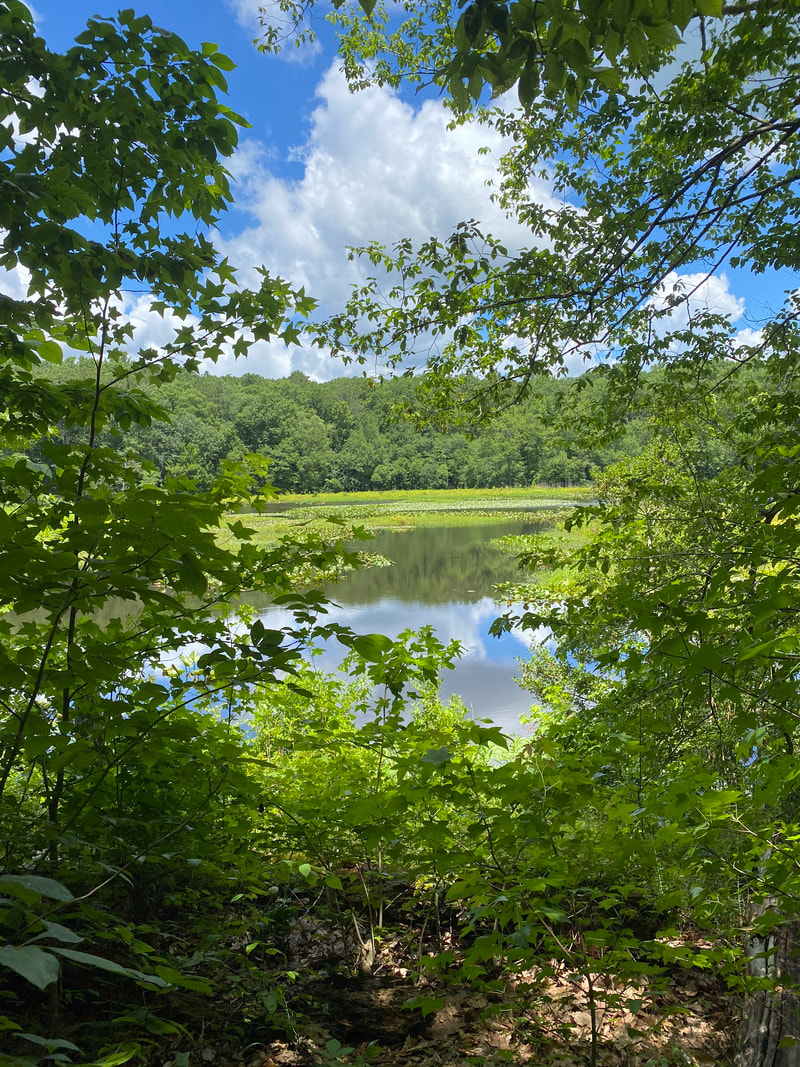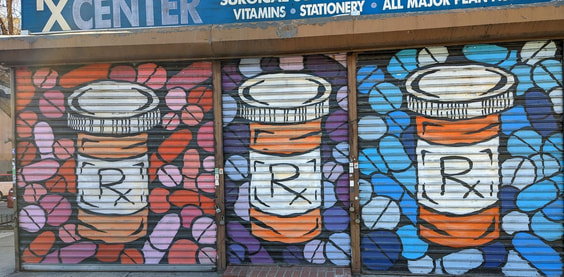|
When I have the opportunity to be outside, I take it. Even if it is starting my morning on the deck with coffee, going for a walk in the neighborhood, or strolling in a local park for a short time. There is something about the color, the smell, and the sounds that is so soothing. I have always wondered if it was my personality that pulled me to nature, or something else. It turns out, I am not the only one who wondered about this.
I recently ran across an article that talked about the science of "your brain on nature." This article inspired me to look at the writings and research behind this idea. Looking back a few hundred years, there are writings that support the belief that nature is good for us. One of the US's most influential landscape designers, Frederick Law Olmsted (who designed Central Park, as well as many others) was significantly influenced by a book written in 1807, by a physician named Johann Georg von Zimmermann. In that book, von Zimmermann talked about and explored how nature could "heal derangements of the mind." (1). Olmsted later adopted this thinking, and even argued to the California government that Yosemite Valley should be protected because "It is a scientific fact that the occasional contemplation of natural scenes of an impressive character ... is favorable to the health and vigor of men and especially to the health and vigor of their intellect.”(2). To return to the recent article I read, the scientific studies do, in fact, substantiate what von Zimmermann wrote in 1807 and Olmsted argued in 1868. It considered studies from the last 10-15 years that focused on how nature (or green areas, as they are known in larger cities) affect our biology. In study after study, the answer is that nature affects our biology in a very positive way. For me, the most notable studies mentioned in the article were Dutch, English, and Canadian studies that measured physical health (by identifying a number of common health issues, like heart disease and diabetes), and compared it to the amount of green space or natural area of the surrounding neighborhoods. These studies controlled for factors such as physical activity and socioeconomic status. Each of these large scale studies found that there were less health issues in neighborhoods with more nature. (3) These studies were so remarkable to me because they took out all factors except exposure to nature, and consistently found positive health effects. From there, I did a search for the effects of nature on our mental health. National Institute of health reviewed studies from the last 15 years that looked at this very idea- and study after study found either physiological or subjective evidence that being in nature improved mental health. (4). This means that some studies actually found reductions in cortisol levels (a biological marker of stress) and/or participants reported feeling better. What I have concluded from this brief study review, inspired by the article, is this- that my morning coffee on the deck is actually restorative, both physically and mentally. For you, the take away is this- nature is a tool or coping mechanism that you can start using right now to feel better- both physically and emotionally. If you are up for it, take a walk outside. If that is too much, find a quiet place with trees or other greenery and sit for awhile. Feeling better isn't about finding one thing to help, it is about developing a tool box of techniques, and nature (in some form) is easily accessed and something you can add right now. If you want to explore other tools, please don't hesitate to contact me. In the meantime, I am going to step outside and give myself a little nature boost. 1. https://www.nps.gov/frla/learn/historyculture/flo.htm 2. https://www.nps.gov/parkhistory/online_books/anps/anps_1b.htm 3. https://www.nationalgeographic.com/magazine/article/call-to-wild 4. https://www.ncbi.nlm.nih.gov/pmc/articles/PMC8125471/
0 Comments
I read an article this weekend in National Geographic that talked about some new research that has been taking place to study the power and effects of placebo. Placebo is a term that most of us have at least some familiarity with, thanks to pharmaceutical companies. In the late 60's to early 70's, the FDA began requiring drug companies to demonstrate that their medication was actually doing something. Most of these studies compared the results of their medication against a group that took a medication that had no active medication in it (a placebo); and neither group knew which got the medication and which got the placebo. In study after study, a surprisingly large number of people would report improvement with the placebo; a much larger improvement than the group that got no medication. This was surprising to many initially.
In case you are curious, Merriam Webster has a few definitions for placebo- a usually pharmacologically inert preparation prescribed more for the mental relief of the patient than for its actual effect on a disorder b: an inert or innocuous substance used especially in controlled experiments testing the efficacy of another substance (such as a drug) 2: something tending to soothe https://www.merriam-webster.com/dictionary/placebo As you can see, the second definition is the one that I referred to initially, but the first and third are the ones I want to focus on. The phenomenon of experiencing improvement with a placebo is termed the placebo effect. Studies that have specifically looked at the placebo effect have theorized that a person's belief that something would help was at the root of improvement with placebo. How amazing is that?? Thinking (and believing) that something would help can make it happen! To me, this idea was unbelievably powerful- If I believe that something will help, it is more likely to actually help. The power of thinking has become a cornerstone of the way I do therapy with clients, and is a foundational part of how I function on a day to day basis. The new research that the National Geographic article refers to gave subjects a placebo, and told them it's a placebo. The researchers explained to the participants that placebos have been shown to improve a person's condition. The results continued to show improvement, even when the participants knew they were taking a placebo. These studies further demonstrate that it is the belief that results in improvement. Although the placebo effect is generally related to medical conditions (and medication), the idea that your beliefs can influence how you feel has a more general application. So, I conclude by asking you this- are you using the power of your brain to better your life and situation? If the answer is no, what steps can you take to harness this amazing power? Feel free to reach out to me if you want to explore this further. https://www.nationalgeographic.com/magazine/article/why-a-placebo-can-workeven-when-you-know-its-fake?rid=E740AD16C88CC9B4B68125230FD1448B&cmpid=org%3Dngp%3A%3Amc%3Dcrm-email%3A%3Asrc%3Dngp%3A%3Acmp%3Deditorial%3A%3Aadd%3DHealth_20220626&loggedin=true https://www.psychologytoday.com/us/blog/brain-sense/201201/the-placebo-effect-how-it-works |
AuthorI am a therapist- helping people to overcome difficulties and improve their lives. Archives
September 2022
Categories |
Site Links |
| ||||||||||||||
Site powered by Weebly. Managed by FreeLogoServices.com



 RSS Feed
RSS Feed
